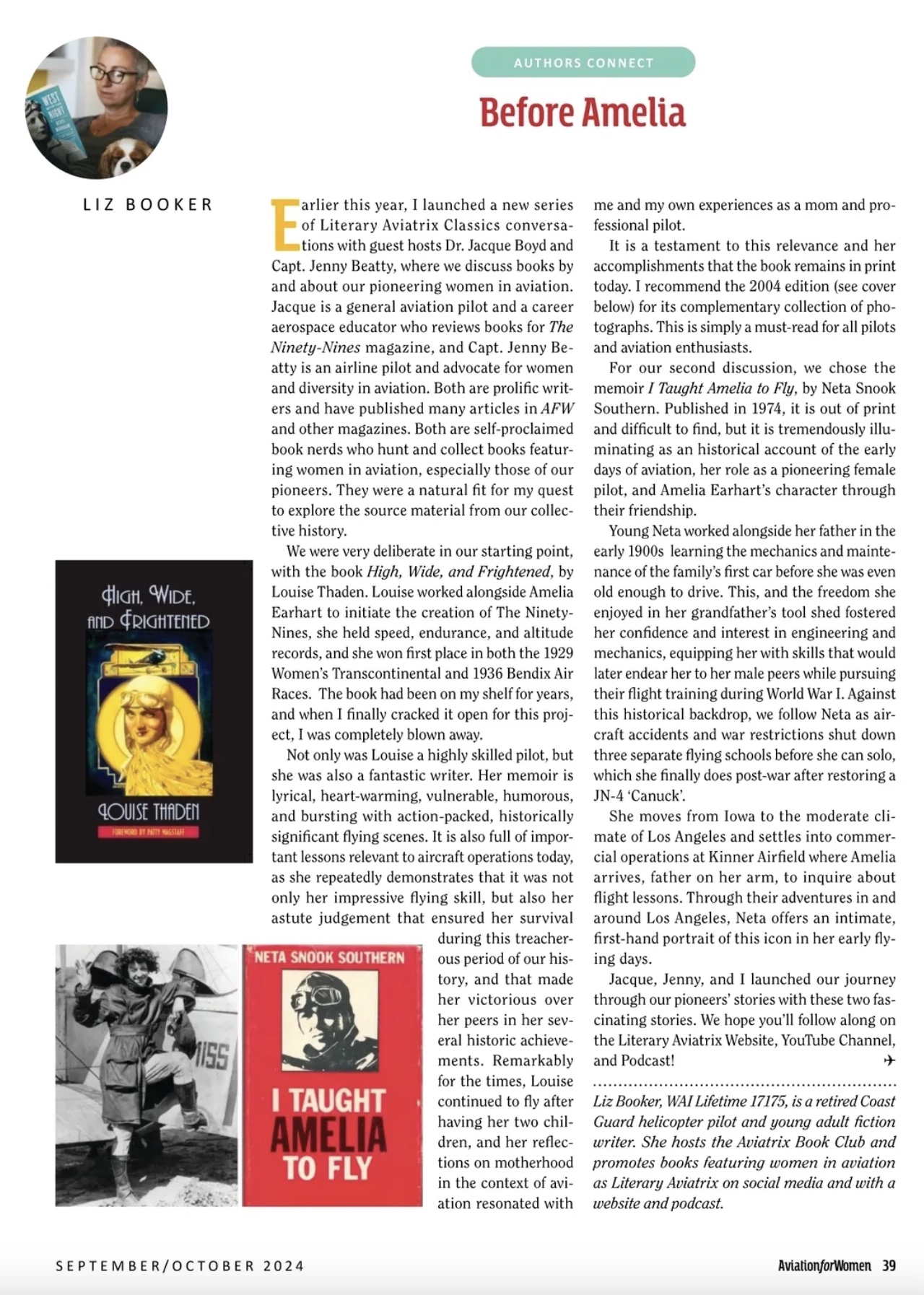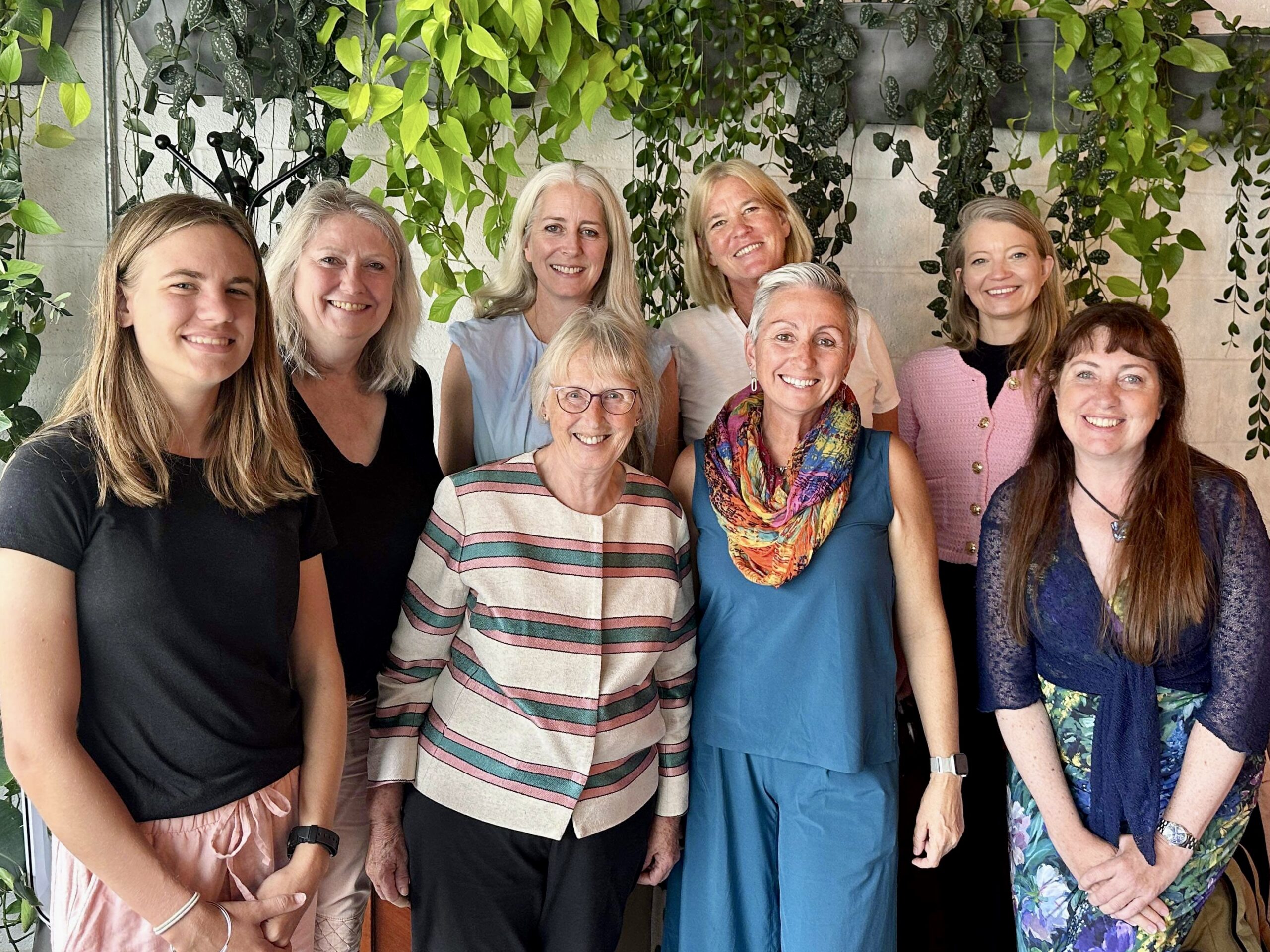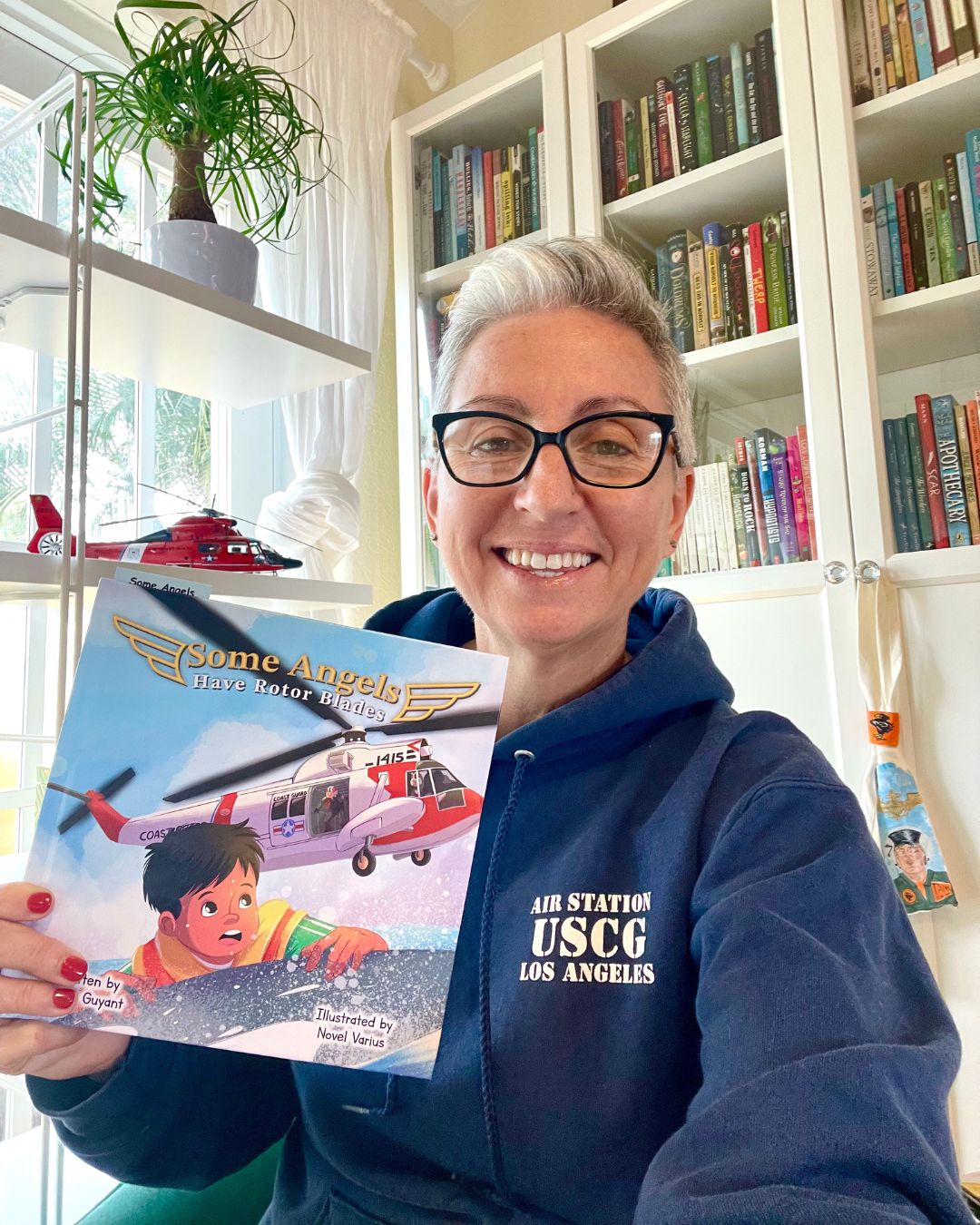
Before Amelia
by Liz Booker
This article was published in the September/October 2024 issue of Aviation for Women Magazine.
Earlier this year, I launched a new series of Literary Aviatrix Classics conversations with guest hosts Dr. Jacque Boyd and Capt. Jenny Beatty, where we discuss books by and about our pioneering women in aviation. Jacque is a general aviation pilot and a career aerospace educator who reviews books for The Ninety-Nines magazine, and Capt. Jenny Beatty is an airline pilot and advocate for women and diversity in aviation. Both are prolific writers and have published many articles in this and other magazines, and both are self-proclaimed book nerds who hunt and collect books featuring women in aviation, especially those of our pioneers. They were a natural fit for my quest to explore the source material from our collective history.
We were very deliberate in our starting point, with the book High, Wide, and Frightened, by Louise Thaden. Thaden worked alongside Amelia Earhart to initiate the creation of The Ninety-Nines, she held speed, endurance, and altitude records, and she won first place in both the 1929 Women’s Transcontinental and 1936 Bendix Air Races. The book had been on my shelf for years, and when I finally cracked it open for this project, I was completely blown away.
Not only was Thaden a highly skilled pilot, but she was also a fantastic writer. Her memoir is lyrical, heart-warming, vulnerable, humorous, and bursting with action-packed, historically significant flying scenes. It is also full of important lessons relevant to aircraft operations today, as she repeatedly demonstrates that it was not only her impressive flying skill, but also her astute judgement that ensured her survival during this treacherous period of our history, and that made her victorious over her peers in her several historic achievements. Remarkably for the times, Thaden continued to fly after having her two children, and her reflections on motherhood in the context of aviation resonated with me and my own experiences as a mom and professional pilot.
It is a testament to this relevance and her accomplishments that the book remains in print today. I recommend the 2004 edition (cover seen here) for its complementary collection of photographs. This is simply a must-read for all pilots and aviation enthusiasts.
For our second discussion, we chose the memoir I Taught Amelia to Fly, by Neta Snook Southern. Published in 1974, it is out of print and difficult to find, but it is tremendously illuminating as an historical account of the early days of aviation, her role as a pioneering female pilot, and Amelia Earhart’s character through their friendship.
Young Snook worked alongside her father in the early 1900’s learning the mechanics and maintenance of the family’s first car before she was even old enough to drive. This, and the freedom she enjoyed in her grandfather’s tool shed fostered her confidence and interest in engineering and mechanics, equipping her with skills that would later endear her to her male peers while pursuing their flight training during WWI. Against this historical backdrop, we follow Snook as aircraft accidents and war restrictions shut down three separate flying schools before she can solo, which she finally does post-war after restoring a JN-4 ‘Canuck’.
She moves from Iowa to the moderate climate of Los Angeles and settles into commercial operations at Kinner airfield where Earhart arrives, father on her arm, to inquire about flight lessons. Through their adventures in and around L.A., Snook offers an intimate, first-hand portrait of this icon in her early flying days.
Jacque, Jenny and I launched our journey through our pioneers’ stories with these two fascinating stories. We hope you’ll follow along on the Literary Aviatrix Website, YouTube Channel, and Podcast!




